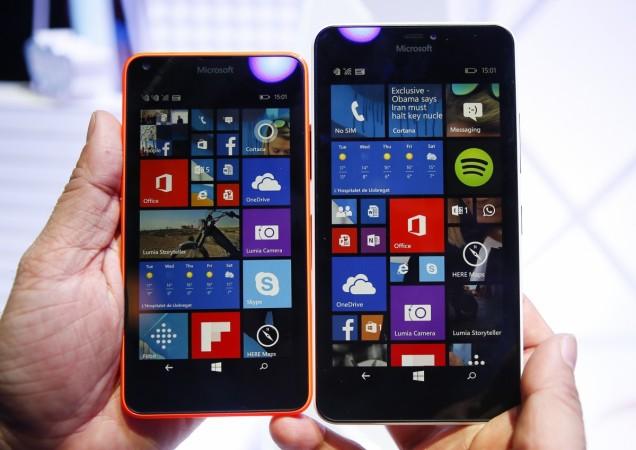Software technology giant Microsoft has officially announced to end support for phones with the company's Window 10 Mobile OS.
Devices with Windows 10 Mobile, version 1709 will receive support till December 10, 2019, and as far as the Lumia 640 and 640 XL phone models (with Window 10 Mobile version 1703) are concerned, they will get support till June 11, 2019.
After the deadline, Windows 10 Mobile users will no longer eligible to receive new security updates, non-security hotfixes, free assisted support options or online technical content updates from Microsoft for free.

In the revised FAQ page for Windows 10 Mobile, the Redmond-based firm has asked owners to make a back up of their device and move to either Google's Android or Apple's iOS platforms.
Also, the user will get an additional three months up to March 30, 2020, to do the backups of their Windows phone and additional 12 months time will be given, to transfer the data such as photo and other files to the new mobile.
Here's how to manually create back up of your Windows phones:
To create a backup, go to Settings->Update & Security->Backup->More Options and then tapping Back up now before that date.
Is this is an end of Microsoft Windows Mobile?
Nope, not yet. Though there is a minuscule number of users owning the Windows phones, it's an end of a competitor, which had potential to disrupt the monopoly of the Android and iOS, which by the way, currently rule the smartphone ecosystem with more than 98% market share.
In 2011, Microsoft got a shot by signing a deal with Nokia to sell Windows phones and launched a series of Lumia phones. In 2014, it fully acquired the company to create a Microsoft Mobile division. It continued the business with Lumia series phones with critically acclaimed camera hardware in various budget ranges. It found instant success in an emerging market like India, but the euphoria did last long. One of the primary reasons for downfall was lack of interest among app developers led to a shortage of popular games, utility apps on Lumia phones. This apparently caused people to lose interest.

In 2015, Microsoft wrote-off $7.8 billion Nokia acquisition and terminated 7,800 employees. In the following year, the company sold the Nokia feature phone line and trademark rights HMD Global Oy. The latter has embraced Android and the Nokia-branded smartphones are gaining a foothold in the global mobile industry.
However, Microsoft is unlikely to give up on the mobile business just yet, as the CEO, Satya Nadella, on several occasions, has said that the company will come back, only when it has something unique to offer. Recent reports have indicated, Microsoft is working on a Surface foldable phone, which might break covers by the end of 2019 or early 2020.

















